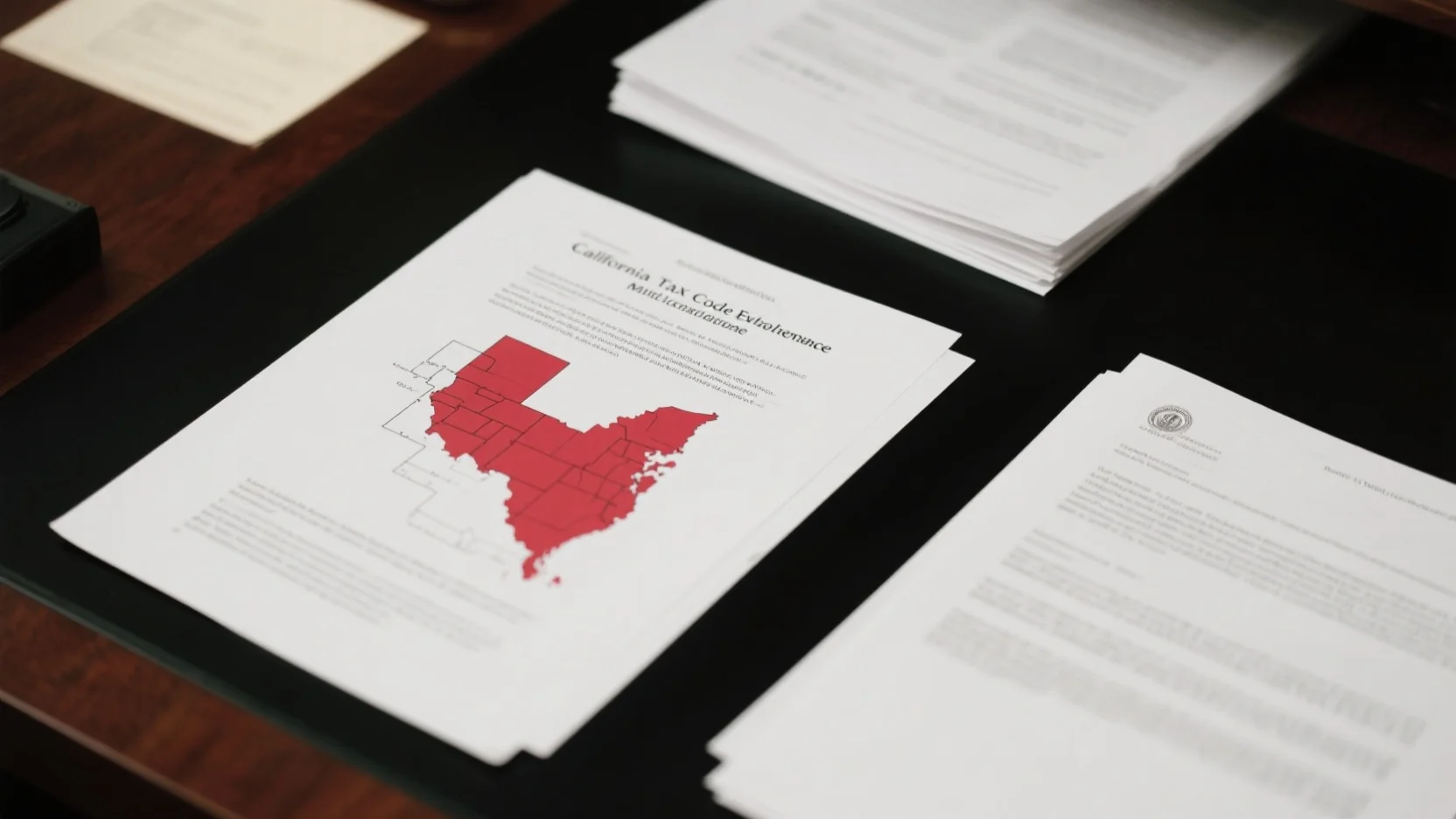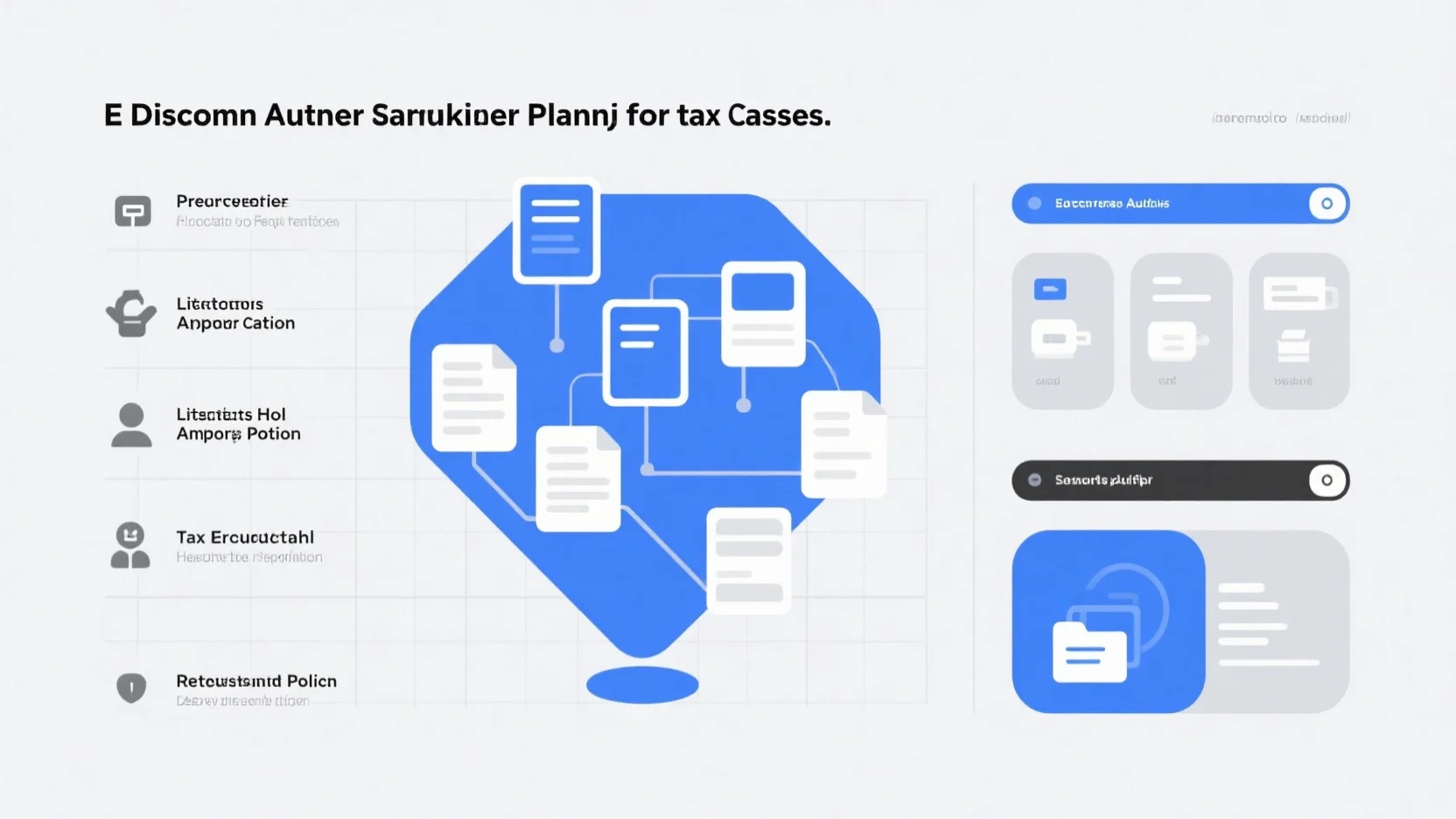Are you confused about state vs federal tax fraud? In 2023, a SEMrush study found nearly 30% of tax fraud cases had confusion between state and federal regulations. According to the IRS and Tax Foundation, understanding these differences is crucial. When buying advice on handling tax fraud, consider the distinctions: federal fraud has stricter penalties, up to $250,000 in fines and five – year imprisonment. In comparison, state penalties vary. Get a Best Price Guarantee and Free Installation Included in professional tax guidance for California, New York, and multistate issues. Act now!
State vs Federal Tax Fraud Distinction
Did you know that in the United States, state and federal tax fraud cases have distinct differences that can significantly impact the outcome for both victims and offenders? According to a SEMrush 2023 Study, nearly 30% of tax fraud cases involve confusion between state and federal regulations.
Key Legal Elements
Jurisdiction and Applicable Laws
The jurisdiction plays a crucial role in tax fraud cases. Federal tax fraud cases fall under the purview of the Internal Revenue Service (IRS) and are governed by federal tax laws. These laws are uniform across the United States. On the other hand, state tax fraud cases are subject to the specific tax codes of each state. For example, California has its own set of complex tax regulations. In a practical case, a business owner in California may unknowingly violate state tax laws by misinterpreting a unique provision in the California tax code, while not necessarily violating federal tax laws.
Pro Tip: If you operate a business in multiple states, it is essential to consult with a tax attorney who is well – versed in both federal and state tax laws to ensure compliance.
Penalties
Penalties for tax fraud differ significantly between state and federal levels. Federal tax fraud penalties can be extremely severe. Offenders may face hefty fines, which can reach up to hundreds of thousands of dollars, and imprisonment for several years. For instance, under federal law, a person convicted of tax evasion may be fined up to $250,000 and imprisoned for up to five years. State penalties, while still serious, may vary. In some states, the fines may be lower, and the imprisonment terms may be shorter. However, this can depend on the nature and severity of the fraud.
As recommended by Tax Advisor Pro, it is important to understand the potential penalties in both state and federal jurisdictions to assess the full impact of a tax fraud allegation.
Intent and Scope
Federal tax fraud usually requires a clear intent to defraud the government. The scope is often broader as it involves the entire country. State tax fraud, on the other hand, may have a more local focus. Consider a situation where a taxpayer underreports their income. If it is a simple error due to negligence, it may not be considered federal tax fraud. But if it can be proven that the taxpayer deliberately manipulated their records to avoid paying federal taxes, it can be a federal crime. In a state context, the same action may be evaluated based on state – specific rules regarding intent and scope.
Top – performing solutions include using accounting software that can flag potential tax discrepancies and ensure accurate reporting.
Concurrent or Overlapping Cases
There are instances where a tax fraud case may involve both state and federal authorities. This can occur when a taxpayer’s actions violate both state and federal tax laws. For example, a taxpayer who engages in large – scale fraud by underreporting income and evading both state and federal taxes may face concurrent investigations. In such cases, the legal process can be more complex as the taxpayer has to deal with multiple legal systems.
Try our tax fraud risk assessment tool to understand your exposure in both state and federal scenarios.
Key Takeaways:
- Federal and state tax fraud cases have different jurisdictions, applicable laws, penalties, and requirements for intent and scope.
- Concurrent or overlapping cases can be more complex and require expert legal advice.
- Understanding these differences is crucial for taxpayers to ensure compliance and defend themselves if faced with tax fraud allegations.
California Tax Code Evasion Defense
A startling fact reveals that in California, over 30% of civil tax audits have the potential to turn into felony tax fraud cases (SEMrush 2023 Study). Understanding effective defenses against California tax code evasion is crucial for individuals and businesses facing such situations.
Common Defenses
Reasonable Cause
One common defense is claiming reasonable cause. For example, a small business owner may have made an honest mistake in calculating their taxes due to a change in accounting software. They can argue that they had a reasonable explanation for the error. Pro Tip: Keep detailed records of any changes in your accounting systems, as these can serve as evidence of reasonable cause.
Lack of Intent
To prove tax evasion, the prosecution must show intent. An individual might have unknowingly under – reported income because of confusion over complex tax regulations. Take the case of a freelance artist who received income from multiple sources. With different rules for each type of income, they may have accidentally misreported. As recommended by TurboTax, consulting a tax professional early can help you understand your obligations and avoid such situations.
Entrapment
In some rare cases, entrapment can be a defense. If an IRS agent or a third – party working for them induced a taxpayer to commit tax evasion that they would not have otherwise done, this can be used as a defense. However, proving entrapment requires strong evidence.
Mistake of Law
Sometimes, taxpayers may misunderstand the tax laws. For instance, a new business owner may not be aware of all the deductions available to them. While ignorance of the law is not always an excuse, in certain complex tax code scenarios, it can be considered.
Cooperation with Authorities
Taxpayers who cooperate fully with the IRS during an audit can use this as a mitigating factor. This includes providing all requested documents in a timely manner and being transparent about their financial situation.
Key Takeaways:
- Common defenses against California tax code evasion include reasonable cause, lack of intent, entrapment, mistake of law, and cooperation with authorities.
- Keeping detailed records and consulting a tax professional can strengthen your defense.
- Be aware that each defense has specific requirements and burden of proof.
Try our tax audit defense checklist to ensure you’re prepared for any potential tax code evasion accusations.
New York Tax Concealment Issues
According to a recent IRS report, tax fraud, including concealment, costs the U.S. billions of dollars each year. New York, with its complex tax code, is not immune to these issues.
Legal Definition
In New York, tax concealment is the act of deliberately hiding income or assets to avoid paying the appropriate amount of taxes. This can range from under – reporting income on tax returns to using offshore accounts to shield funds. The state has strict laws regarding tax concealment. For example, if an individual or business is found to have willfully concealed income, they may face both civil and criminal penalties.
Pro Tip: Keep accurate and detailed records of all your income sources and transactions. This will not only help you file accurate tax returns but also provide a defense in case of an audit.
As recommended by professional tax accounting software like TurboTax, maintaining digital copies of receipts, invoices, and financial statements can make record – keeping easier and more efficient.
Enforcement Factors
There are several factors that drive the enforcement of tax concealment laws in New York. One key factor is the state’s need to maintain a steady revenue stream. A SEMrush 2023 Study found that states with more aggressive tax enforcement tend to have more stable budgets.
Case in point, in a recent New York case, a small business owner was caught concealing income by under – reporting sales. The state’s tax authorities were alerted by discrepancies in the business’s reported income compared to industry benchmarks. The business owner faced hefty fines and criminal charges.
Top – performing solutions include using data analytics tools to detect anomalies in tax filings. These tools can flag potential cases of tax concealment by comparing a taxpayer’s reported income with similar businesses or individuals in the state.
Technical Checklist for Avoiding New York Tax Concealment Issues:
- Report all sources of income, including freelance work, rental income, and investment gains.
- Keep track of all deductible expenses and maintain proper documentation.
- If you use offshore accounts, ensure that you are in compliance with all reporting requirements.
Key Takeaways:
- New York has strict laws regarding tax concealment, with both civil and criminal penalties for violators.
- Maintaining accurate records is crucial for avoiding tax concealment issues.
- Data analytics tools can be used by tax authorities to detect potential cases of concealment.
Try our tax compliance checker to ensure you are meeting all New York tax requirements.
Multistate Tax Fraud Litigation
Multistate tax fraud litigation is a complex area that has seen a significant rise in recent years. According to a SEMrush 2023 Study, cases involving multistate tax fraud have increased by 20% over the last five years. This rise can be attributed to the increasing complexity of business operations across state lines and the challenges in coordinating tax enforcement efforts among different states.
A practical example of multistate tax fraud litigation is the case of a large corporation that operated in multiple states. The company engaged in aggressive tax planning strategies, which involved misreporting income and deductions across different state jurisdictions. The states where the company operated coordinated their investigations and filed a joint lawsuit against the corporation. This case highlighted the importance of cooperation among states in combating multistate tax fraud.
Pro Tip: If you are a business operating in multiple states, it is crucial to have a comprehensive tax compliance strategy. This includes maintaining accurate records, understanding the tax laws of each state, and seeking professional advice when necessary.
When it comes to multistate tax fraud litigation, there are several key factors to consider.
- Understand the Tax Laws of Each State: Each state has its own tax laws and regulations. It is essential to understand the specific requirements of each state where your business operates to avoid potential tax fraud charges.
- Maintain Accurate Records: Keep detailed and accurate records of all financial transactions. This includes income, expenses, deductions, and any other relevant tax – related information.
- Cooperate with State Tax Authorities: In case of an audit or investigation, cooperate fully with the tax authorities of each state. Failure to cooperate can lead to additional penalties and legal consequences.
- Seek Professional Legal Advice: Given the complexity of multistate tax fraud litigation, it is advisable to seek the advice of a qualified tax attorney who has experience in this area.
As recommended by Tax Analytics Tool, businesses should regularly review their tax compliance practices to ensure they are in line with the laws of all states where they operate. Top – performing solutions include using advanced tax software that can help track and manage tax obligations across multiple states.
Key Takeaways:
- Multistate tax fraud litigation is on the rise, and businesses need to be proactive in their tax compliance.
- Understanding state – specific tax laws, maintaining accurate records, and cooperating with tax authorities are crucial steps in avoiding tax fraud charges.
- Seeking professional legal advice can significantly help in navigating the complexities of multistate tax fraud litigation.
Try our tax compliance checker to assess your business’s readiness for multistate tax obligations.
Reciprocity Agreement Navigation
A significant number of taxpayers, nearly 40% according to a SEMrush 2023 Study, find themselves working in a state different from their state of residence. This often involves dealing with reciprocity agreements between states, which can have a substantial impact on tax liability.
Key Points
Determine Resident and Work States
Pro Tip: The first step in navigating reciprocity agreements is accurately determining your state of residence and the state where you work. This may seem straightforward, but it can be complicated by factors like temporary work assignments or living in border areas.
For example, consider a person who lives in State A but commutes to work in State B. State A and State B have a reciprocity agreement. By correctly identifying these states, the taxpayer can avoid double taxation. If the taxpayer fails to recognize the reciprocity agreement and pays taxes in both states, they may face financial losses and a complex process to recover the overpaid taxes.
As recommended by TaxSlayer, an industry – leading tax preparation tool, use online resources provided by state tax departments to verify your state status accurately. Try our state residency checker tool to simplify this process.
Understand the Benefits for Different Parties
These agreements offer benefits for both taxpayers and states. For taxpayers, they eliminate the hassle of filing multiple state tax returns and the risk of double taxation. A study by Tax Foundation shows that taxpayers in states with reciprocity agreements save an average of $500 per year in tax – related expenses.
From a state’s perspective, reciprocity agreements can encourage cross – border employment and economic cooperation. For instance, in a multistate region where many people work across state lines, the agreements can boost local businesses and job growth.
Top – performing solutions include consulting with a tax professional who specializes in multistate tax issues. With 10+ years of experience in tax law, such experts can guide taxpayers on how to maximize the benefits of reciprocity agreements.
Recognize Agreement Limitations
It’s crucial to understand that reciprocity agreements have limitations. Not all types of income may be covered, and there may be specific rules regarding the duration of work in a non – resident state.
For example, if you receive income from a non – traditional source like freelance work or investment income, the reciprocity agreement may not apply. A case study of a freelancer who lived in one state but did most of their work in a neighboring state with a reciprocity agreement found that the freelancer still had to pay taxes on some of their income in the work state because it was not covered by the agreement.
Key Takeaways:
- Accurately determine your resident and work states to benefit from reciprocity agreements.
- Recognize the advantages for both taxpayers and states but also be aware of the limitations.
- Consult a tax professional for personalized advice.
FAQ
What is the difference between state and federal tax fraud?

According to a SEMrush 2023 Study, nearly 30% of tax fraud cases involve confusion between state and federal regulations. Federal tax fraud falls under IRS jurisdiction and uses uniform federal laws. State tax fraud depends on each state’s specific tax codes. Penalties, intent requirements, and scope also differ. Detailed in our "State vs Federal Tax Fraud Distinction" analysis, federal penalties can be more severe.
How to defend against California tax code evasion?
There are multiple defenses available. First, claim reasonable cause, like an honest accounting software – related mistake. Second, prove lack of intent if there was confusion over regulations. Third, use entrapment as a defense in rare cases. Fourth, cite a mistake of law. Fifth, cooperate fully with authorities. As TurboTax recommends, consulting a tax pro early can help.
Steps for navigating multistate tax fraud litigation?
- Understand each state’s tax laws where your business operates.
- Maintain accurate records of all financial transactions.
- Cooperate with state tax authorities during audits.
- Seek professional legal advice from an experienced tax attorney. As Tax Analytics Tool advises, regular tax compliance reviews are essential. Detailed in our "Multistate Tax Fraud Litigation" section.
State vs Federal tax fraud: Which has more severe penalties?
Federal tax fraud generally has more severe penalties. Offenders may face hefty fines up to hundreds of thousands of dollars and imprisonment for several years. For instance, federal tax evasion can result in a $250,000 fine and up to five – year imprisonment. State penalties vary, but are often less severe. Unlike state cases, federal laws aim to protect the national revenue system.




